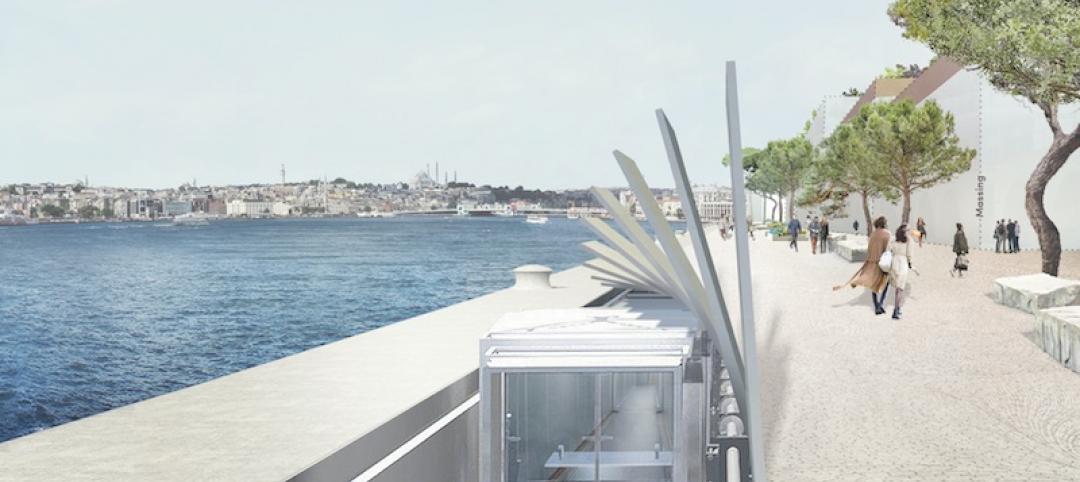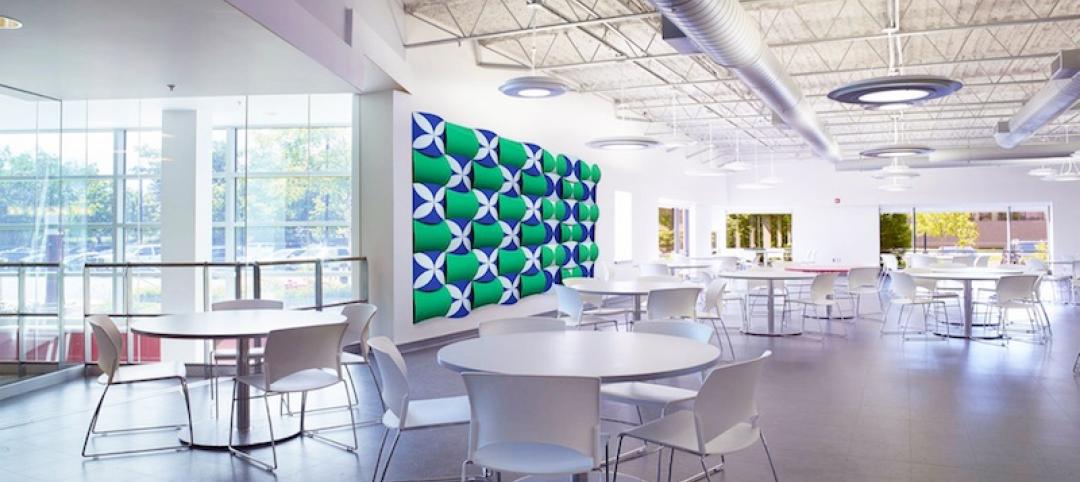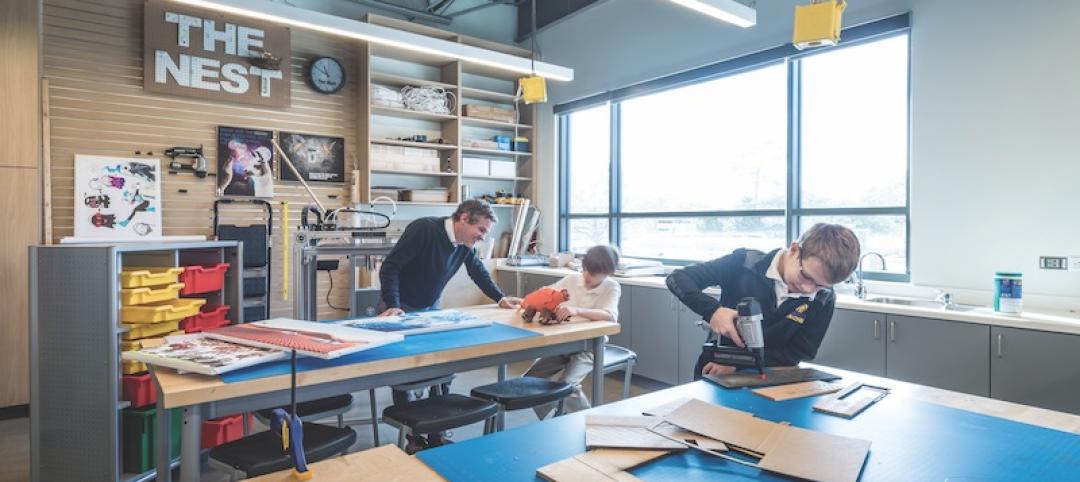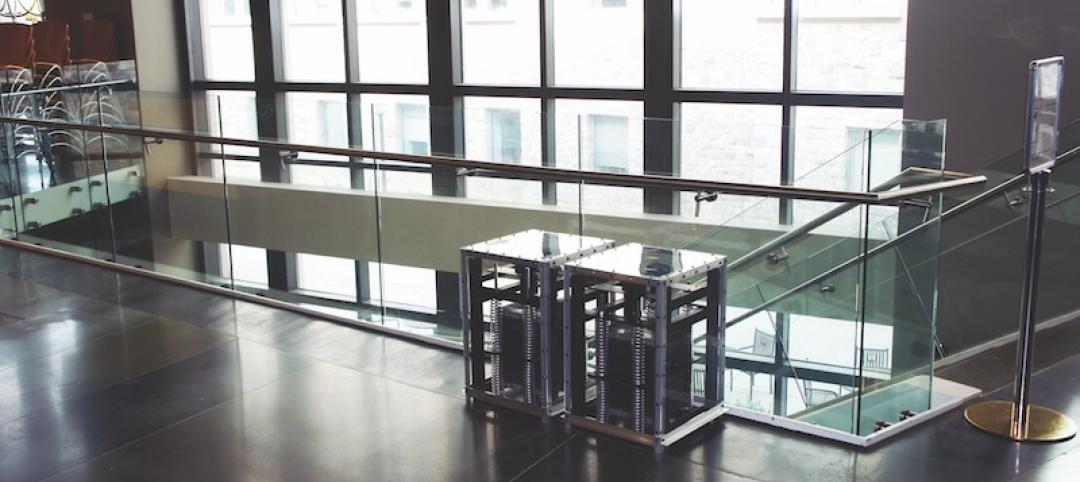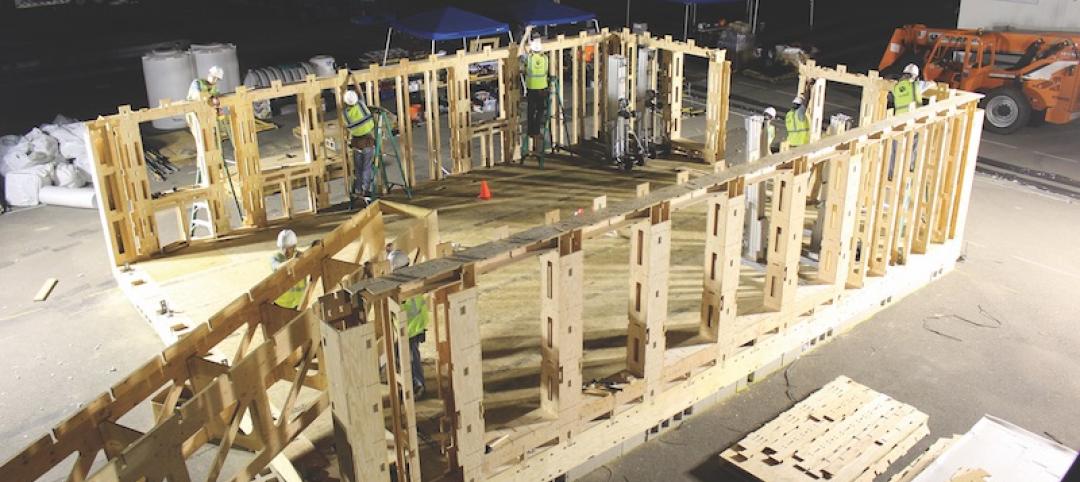There are only so many times a family can vacation to Disneyland before it grows a bit tiresome. The problem is, as jaded as it may seem, many vacation destinations fail to impress because they all provide similar experiences. But what if your next vacation could take a step off the well-worn path carved by thousands of travelers before you and, instead, become something completely tailored?
That’s the idea behind HOK’s Driftscape, a concept that combines hospitality with the technology of autonomous vehicles and drones. Driftscape uses modular glass units powered by long-range batteries to travel to locales previously uninhabitable by more traditional hotels, such as secluded tropical islands, mountaintops, and national parks.
Driftscape incorporates two components: the Oasis, which features operational and community units with a food and beverage element, and the Driftcraft, the actual guestroom.
Instead of the hotel room acting as the last stop on your journey, the Driftscape experience takes guests on what HOK designers call the “reverse journey.” The roaming guestroom collects the guests at a designated pick-up zone and then travels to their final destination, which will often be the Oasis and its myriad amenities set up in a remote, scenic location—all while leaving minimal impact on the environment, says HOK.
This all may sound a bit chimerical, but perhaps the most unbelievable aspect of Driftscape is its feasibility. “With the rapid advancements being made in the autonomous vehicle and drone industry by companies such as Tesla and Ehang, we estimate the possibility of this futuristic concept coming to fruition within five to seven years,” says Ian Rolston, LEED GA, Senior Project Interior Designer with HOK.
Initially, the Driftscape concept would be considered a premium experience and have a pricetag to match. But with the rapidly evolving technology, costs will eventually be akin to those of a luxury cruise, says Rolston.
 Rendering courtesy of HOK.
Rendering courtesy of HOK.
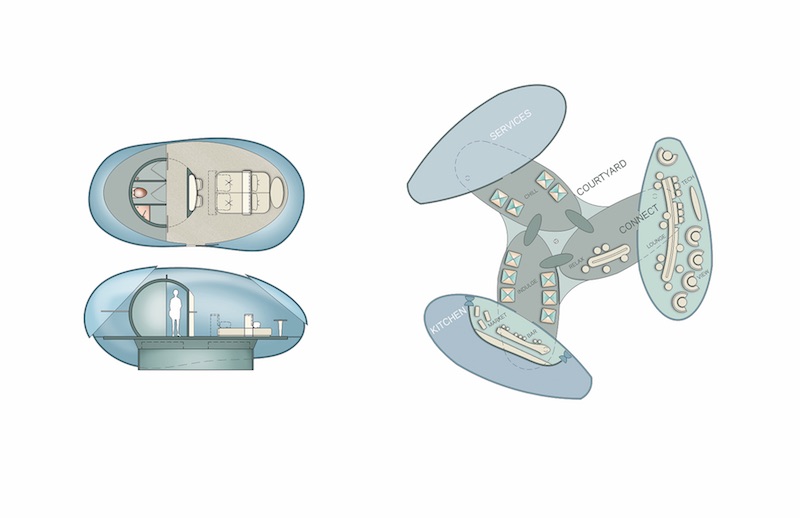 Rendering courtesy of HOK.
Rendering courtesy of HOK.
Related Stories
Great Solutions | Apr 5, 2018
IAQ monitoring for all
San Francisco startup Bitfinder debuts a commercial-grade version of its air quality monitoring system.
Great Solutions | Mar 9, 2018
Forget the wall thermostat: Wear one on your wrist instead
The Embr Wave Wristband acts like a personal thermostat and could become a user-friendly component in building energy-saving strategies.
Great Solutions | Feb 8, 2018
Stackable steel modules speed building core construction
With this patented, steel-and-concrete hybrid system, the service core will no longer be the schedule bottleneck on new construction projects.
Great Solutions | Jan 10, 2018
Blue lagoon technology brings the beach anywhere in the world
From coastal resorts to inner cities, these large-scale clear-water lagoons offer a slice of paradise.
Great Solutions | Oct 17, 2017
Loop NYC would reclaim 24 miles of park space from Manhattan’s street grid
A new proposal leverages driverless cars to free up almost all of Manhattan’s Park Avenue and Broadway for pedestrian paths.
Great Solutions | Sep 14, 2017
Hydraulic underground boardwalk and gangway system reunites the public with the coastline in Istanbul
The bespoke system is part of a master plan by Dror and Gensler that creates the world’s first underground cruise operation.
Great Solutions | Aug 14, 2017
Transmogrifying ‘E ink,’ energy-harvesting paint remove the ‘fiction’ from ‘science fiction’
These materials can turn an ordinary wall into dynamic real estate.
Great Solutions | Jul 12, 2017
The writing on the wall: Maker spaces encourage students to take an active role
Maker spaces, dry-erase walls, and flexible furniture highlight Kinkaid’s new Learning Center.
Great Solutions | Jun 6, 2017
Good vibrations: Portable tuned mass damper provides lightweight, cost-effective way to reduce structural vibrations
Developed by a team at Virginia Tech, the PTMD has been shown to reduce vibrations by as much as 75%.
Great Solutions | May 5, 2017
No nails necessary: Framing system comes together with steel zip ties and screws
Clemson University’s School of Architecture develops a patent-pending construction method that is gaining attention for its potential use in rapid, low-tech sustainable housing.







